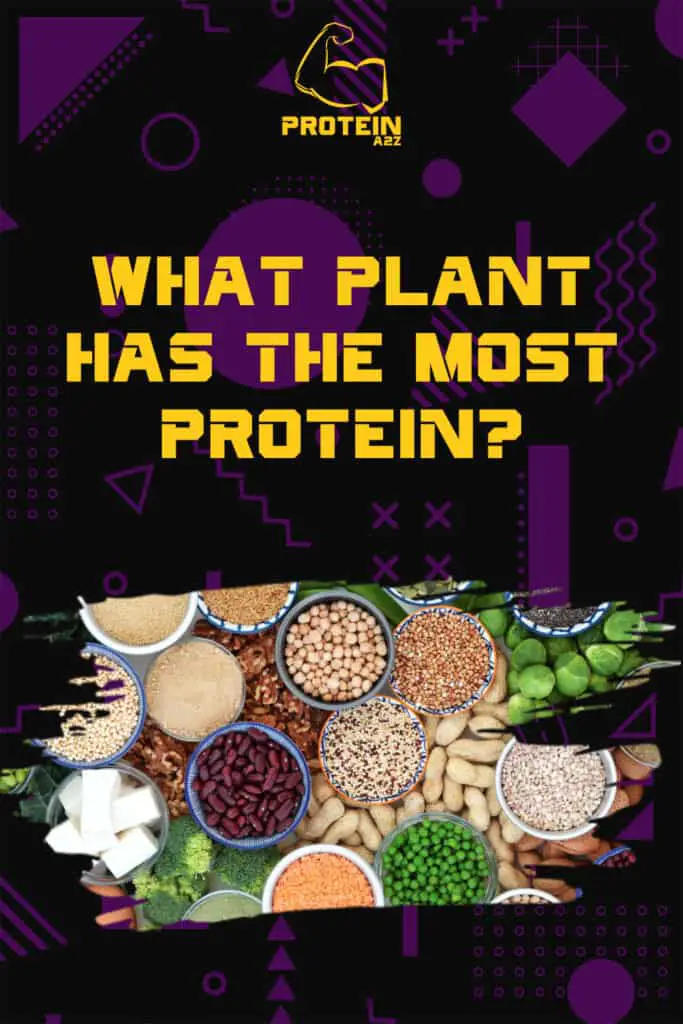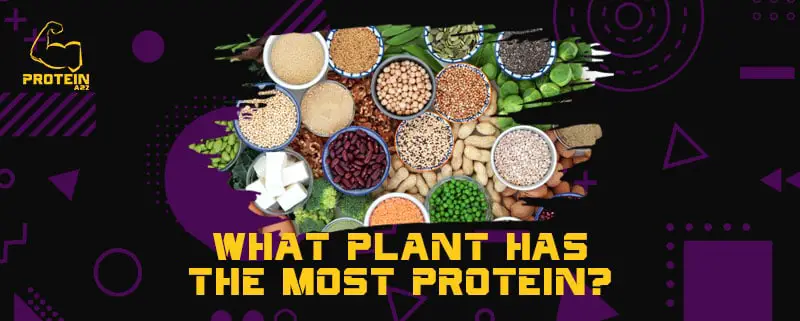For decades most people related meat to protein. Nowadays, however, the knowledge of protein-rich plants has widely spread. Lentils, quinoa, chia, hemp seeds, soybeans, oats and peanuts all contain high amounts of protein and are used by many vegans to increase their daily protein intake.
Table of Contents
Lentils are one of the best superfoods
Although recently quinoa and chia seeds were overhyped, the champion superfood among all plants is undisputedly lentils. Not only do variations of lentils contain 18 grams of protein on average per 100 grams, but they are also packed with important micronutrients our bodies need.
Not only that, but there are many variations of lentils, depending on your taste. Some are quick and easy to cook like red lentils, for example, which take no more than 20 minutes to prepare.
The super legume food is packed with fiber, decreases the risk of cardiovascular diseases, stabilizes blood sugar, lowers cholesterol levels, and provides us with replenished iron reserves and good carbohydrates for energy.
The only downsides of lentils are that they lack phytonutrients and a good amount of healthy fats. On the other hand, eating a huge amounts of fiber lentils can disrupt your bowel movements if consumed in larger quantities.
Chia and sunflower seeds complement lentils
Chia seeds, as well as sunflower seeds, complement lentils in a way since they provide the much-needed healthy fats that lentils do not offer. Chia seeds have a whopping 35 grams of fat per 100 grams, of which more than half are omega 3s, so they’re a great source of healthy fats. Moreover, chia seeds are an amazing source of calcium, magnesium, phosphorus and manganese.
Sunflower seeds contain even more healthy fats than chia, up to 45 grams per 100. They are also a good source of protein, vitamin E, copper, and selenium. Aside from that, they also help prevent common heart diseases and type 2 diabetes. They can easily be added to any salad or meal, cooked or not.
FAQs about meat consumption
Does it matter if you consume protein from meat or plants?
Plant protein is reliable, but lacks one or more of the essential amino acids that our bodies need. Whereas meat protein sources are complete proteins and contain all of the amino acids that we need in order to build muscle and function properly. Fish and eggs also contain complete proteins.
Can eating meat be bad for your overall health?
Meat sources contain complete proteins and are good for muscle growth. On the other hand, most red meats are bad for cholesterol levels and unwanted weight-gain. They also increase the risk of stroke and heart disease. Lean meat like chicken breasts is safe to consume in moderate quantities, as well as lean beef and fish.
Do vegetarians live longer than meat eaters?
Recent studies have shown that vegetarians, in general, live up to 6 to 9 years longer. On the other hand, the research did not take into account other parts of the lifestyle of the examined subjects. Vegetarians tend to lead a healthier lifestyle filled with exercise, hiking, less smoking and alcohol, which might have affected the results of the study.
What are the benefits of eating plant based proteins?
When you follow a diet based on eating plant based proteins, it has been shown that you can reduce the risk of heart failure and coronary artery disease. There is a lot of great nutrients in plant food like antioxidants, vitamins, phytochemicals, minerals, fiber and of course plant protein.

User comment about protein in plants
What Are Plants With Protein?
Those who aren’t ready to start a protein supplement program are looking for ways to add more vegetables to their diet, but are wondering if they should include Plants With Protein. Plant Proteins are a perfect solution to those who want to increase their protein intake but don’t have time to cook or clean up after meals.
These protein supplements can be purchased at any health food store and usually come in powder form. They are designed to enhance the protein that is already in your diet without adding extra calories. The way these supplements work is by increasing the amount of amino acids in your body, which helps to boost your metabolism. You can also find some Plant Proteins in liquid form, which will help your digestive system to process the supplement faster.
Plants can give you a lot of protein
Plant Proteins can give you more protein than you normally get from your diet, but there are a few things you need to keep in mind before you start. If you want to increase your intake of protein in your diet, you need to make sure your diet includes more vegetables.
Protein content in vegetables varies
The reason for this is that when you eat more vegetables, you are consuming more of the necessary amino acids. It is a myth that you cannot get enough protein from a plant-based diet, however. Nature packed plenty of vegetables with protein into their plant cells. Legumes, such as beans, peas, dry peas and lentils; and soy, nuts and seeds contain plenty of protein.
One of the best benefits of Plant Proteins is that they are very convenient for the busy person. If you’re trying to get the protein you need quickly, you do not have to go through the trouble of making a protein shake or a protein bar.
You can take your Protein shakes or bars right along with your favorite juice or milk, which makes it even easier to enjoy them. Plant proteins also taste great! They have a creamy texture and will not irritate your stomach. This is a great option if you have a lot of cravings. Because they taste so good, most people who are looking to get the protein they need in a quick amount consume them.

